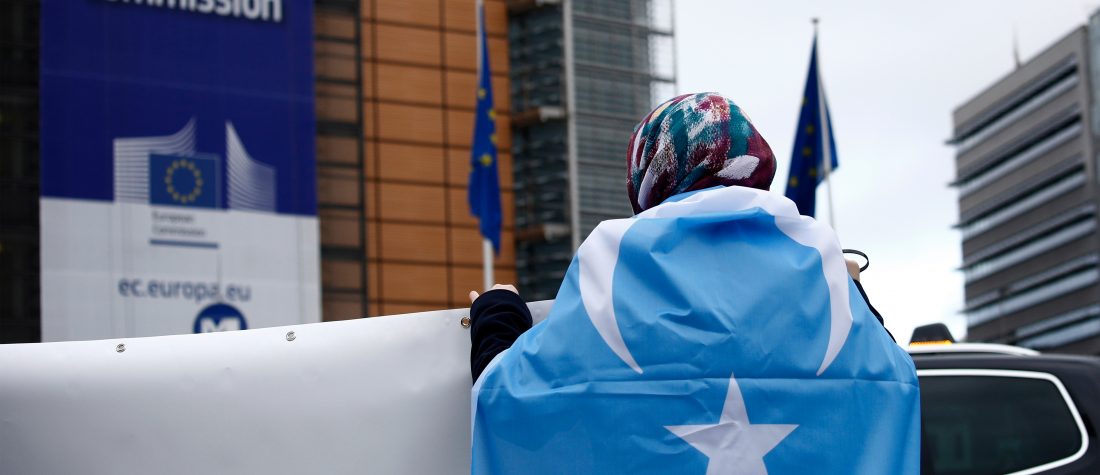News on China over the past weeks has been dominated by the findings of the independent report from the Newlines Institute, in cooperation with Raoul Wallenberg Centre, which argues that China bears state responsibility for breaching every article of the 1948 Genocide Convention in their treatment of the Uyghur people of Xinjiang province.
Parliaments around the world are now studying and debating it, and many are considering following the path set by the Netherlands and Canada in declaring the situation in Xinjiang a genocide. This is as it must be: some 151 counties are signatories to the Genocide Convention (including China), and each has a duty under the Convention to make their own determination of whether a situation meets the criteria set out in the Convention.
But where the international community ultimately falls on this issue will be a pivotal event in the history of this century. China is currently the second-most powerful country in the world, and its trajectory is still firmly upwards. Sooner or later, China is expected to be able to successfully challenge the US for the top position, if current trends are maintained.
Against that background, the issue of the genocide of the Uyghurs will be of global significance in at least one of two ways. First, if China continues with its policies and successfully destroys the Uyghur identity, and the response from the international community is muted, we will find ourselves in 50 years’ time in a world where the pre-eminent global superpower is an unapologetic perpetrator of genocide.
This will have consequences for marginalised groups of people throughout China’s immediate regional neighbourhood, but also anywhere in China’s sphere of influence. There will never be any justice for the Rohingya people of Myanmar, for example, as Myanmar is quite firmly in Beijing’s sphere of influence. Moreover, as Chinese influence continues to spread in western Asia and Africa, ethnic tensions already present in these regions will be given permission to grow into full-blown ethnic warfare and even more genocides. And let us not even contemplate what the increasing influence of China in the Balkans might give nationalists in power there, permission to do.
Alternatively, if the international community responds robustly to the Uyghur genocide, this may be the moment when China’s global ascendency is stopped in its tracks. Countries dedicated to the values of human rights and international law, mostly Western counties and their traditional allies, may instead start to withdraw from commercial arrangements with Beijing which make them economically dependent on the Asian giant, and start to reform as a new “Free World” reminiscent of the Cold War, once again dominated economically by the US, but also underpinned by the US security guarantee.
Neither of these is a good outcome. Twenty years ago, when we were first grappling with the rise of China in this century, we all hoped that as they became more integrated with the global economy, Beijing would also pick up some of the values and the liberal political institutions of the West. Had that happened, we would have had a chance to live in a much more harmonious 21st century.
Nevertheless, of the two outcomes that currently seem possible, one is obviously preferable to the other. We must preserve the dignity of human life, and the power of the international laws which seek to protect it, even if we can only do so in our own part of the globe. If China is unwilling to join our system of respect for human life and dignity, we should be unwilling to submit to their vision of might makes right for the benefit of the commercial interests of a handful of transnational companies.
As per the Genocide Convention, any state that is Party to the Convention is complicit and criminally liable if it continues to engage with a state engaged in genocide. But more than that, every smaller country around the world must now weigh the importance of international law for their own security and the safety of their own people. The question for every such country for the remainder of this century is this: Is it a good idea to make yourself dependent on a global superpower which only cares for maximising its own power and has no regard for any of your own interests, needs or desires, or would it be a better idea to join the cause of a global superpower which at least allows itself to be bound by internationally agreed laws and norms?
Unfortunately, the EU has recently moved closer to Beijing in the aftermath of the Trump years in the White House. But this new recognition that the actions of Beijing towards the Uyghurs amount to genocide must give us pause. France was right to resist the EU-China Comprehensive Agreement on Investment on human rights grounds, after all. The ratification process on that agreement must now be stopped, and any move towards closer economic cooperation with Beijing must be put on pause until the situation in Xinjiang is entirely remedied.
If we join with the US and with other Asian countries to use our economic leverage together, we can save the Uyghurs from extermination. And because we can, it is also evident that we must. If the European Union is to stand for anything, it must stand for human rights and international law, and against genocide.
Dr Azeem Ibrahim is a Director at the Newlines Institute for Strategy and Policy and Research Professor at the Strategic Studies Institute US Army War College


